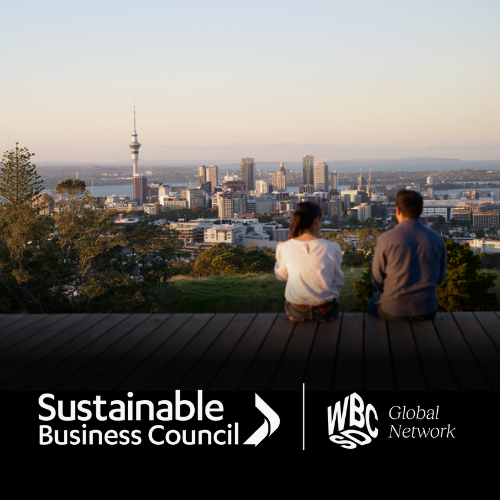Waste Management was a founding member of the New Zealand Business Council for Sustainable Development (now SBC) in 1999, along with Living Earth. Tom Nickels, Managing Director, talks about what progress he has seen in business sustainability in New Zealand in the last 20 years and what he would like to see in the next 20 years.
Transcript follows
How did Waste Management get involved in sustainability?
At Waste Management we’ve always been involved in sustainability. I guess it started really back in 1988 when we first got into recycling, investing in plants across New Zealand and also helping to educate the people of New Zealand about the importance of recycling and reusing. We then invested in processing of food and garden waste into compost via Living Earth.
What progress have you noticed in business sustainability in New Zealand in the last 20 years?
Over the last 20 years we’ve seen a lot of progress in business sustainability. Not only within the sector that Waste Management operates in but across all the sectors that we service. In particular we’ve seen that accelerate in the last 5 years with a sense of urgency around greenhouse gas emission and moving to a lower carbon economy.
What sustainability milestones has Waste Management achieved in the last 20 years?
The milestones over the last 20 years at Waste Management is a very long list, so I’ll just pick a few highlights. It really started with recycling and processing plants for recycling, then composting with Living Earth. Through the 90s we developed 3 modern sustainable landfills where nothing leaches into the ground. We capture the gas and generate renewable electricity. In fact, in Auckland we are the largest producer of renewable electricity. And more recently I guess the really exciting milestones have been our step out into electric vehicles. Our commitment to electrifying the fleet that we operate, our 900 trucks and our 250 light vehicles. Changing them over to electrification.
I guess as part of that we started by having trucks converted in Amsterdam and then last year we opened our Innovation Hub where we convert a diesel truck into an electric powered truck here in our workshop at the Innovation Hub, here in Auckland. And beyond that I guess other significant milestones would be our joining of the Climate Change Leaders’ Commitments and also the publication of our strategy, our sustainability strategy, the For Future Generations that we’ve called it.
And there, I think we are the first waste company in this part of the world to make that public commitment, including certifying our carbon emissions under the CEMARS regime. So, it’s all out there and our action plans to deal with that are out there for everyone to see.
How has being part of the Sustainable Business Council helped you?
Being part of the Sustainable Business Council for us at Waste Management has meant that we can work with other leading companies here in New Zealand to do very important work and to learn from each other, particularly in programmes like reducing our carbon footprint, moving towards a sustainable, circular economy here in New Zealand.
What would you like to see in the next 20 years?
Over the next 20 years I’d really like to see New Zealand move towards a much lower carbon economy, I’d like to see us embrace the principles of genuine circular economy, and of course I’d love to see and I truly believe that we’ll all be driving electric vehicles, so heavy fleet, trucks and light fleet, cars and vans, buses all transitioning over to electrification.

